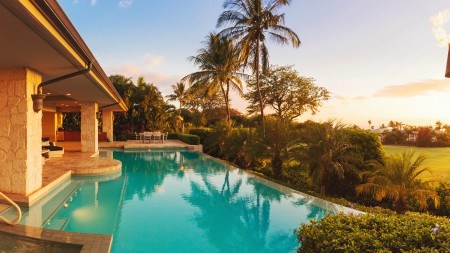Last week The Roosting Venus wrote abut how her thoughts turned to investing in Mozambique while on holiday in that beautiful country. See: A slice of paradise
In this week's piece she explores the options available to would-be investors.
We were still on holiday. Or I was at least. In typical Other Half style, he’d disappeared down the beach, beer in hand and I’d seen very little of him since. Sometimes I wondered whether he was actually in the country at all. Until he needed a meal of course. But with blue seas stretching out in front of me and a tranquil Mozambican coastline stretching to either side, it was not of great consequence either way.
Mozambique’s economy was burgeoning, and it was my plan to find out how we could get a slice. The real estate sector was the obvious answer of course with the prices of residential, commercial and retail spaces having more than tripled in Maputo in the last five years. Northern areas such as Pemba, Nacala and Nampula with their natural gas resources were also enjoying upgrades in infrastructure and resources with land for development being rapidly snapped up.
However buying land in Mozambique did come with its challenges. The first being that in terms of the Mozambique Land Law, all land in the country is the property of the state and cannot therefore be bought or sold. One can however, acquire the right of use and benefit from the land (Direito de Uso e Aproveitamento de Terra /DUAT). This means that while the land itself can’t be owned, any infrastructure, improvements or construction on the land can be owned, sold and transferred from one owner to another. In this way owners of, for example, leisure property, can buy a structure built on the land and sell this structure at a profit, transferring at the same time, the land use title (DUAT) to a new owner.
When it comes to foreigners though, who want to buy into existing developments, a DUAT is not required, as this would have already been undertaken by the developers. Instead foreign investors can buy into sub-let developments through the Periodic Occupation Regulation (Regulamento de Habitação Periódica) and this has proved attractive to many South Africans looking to invest in Mozambique. With the Periodic Occupation Regulation has come the development of many timeshare, fractional ownership and residential occupation options for tourists, as well as the long term investment in business premises.
The two most common forms of ownership in these cases are fractional ownership and shared ownership, with fractional ownership allowing owners shares in the development and shared ownership generally translating to a time-share option. With shares in the development, owners who have bought through fractional ownership can profit if the property increases in value, and can sell their shares at a profit should they wish. Owners who buy under time share on the other hand generally remain restricted a set number of stays per year, regardless of any increase in value of the property.
The more I thought about it, the more appealing fractional ownership became. Having just a part in a foreign property is certainly attractive when someone else is responsible for the admin, and as the process of obtaining property under the DUAT is long and complicated, that admin too, is tempting to leave to someone else.
Whichever way one does it though, the use of independent qualified legal advice is highly recommended and whatever the development, all title deeds, DUATs and operating licenses should be thoroughly checked in advance.
www.privateproperty.co.za
087 375 1000


